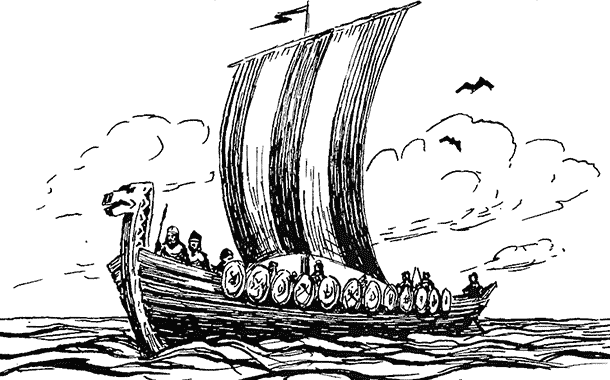<![CDATA[There was no mercy for the locals living in the city of Nantes, France, when in June 843 the Vikings stormed the city and killed everything in their path - even the priests and clergy. According to the accounts of survivors, many of the people were killed while they were celebrating Mass. The Viking's actions might seem monstrous, even by medieval standards, but a new study conducted by Yale History Professor Anders Winroth states that most of the stories surrounding the Vikings were actually exaggerated. Winroth writes that when one scrutinizes the attack on Nantes in greater detail, a more reasonable image begins to emerge. In particular, he draws attention to the account of a bishop from Nantes, who after stating that the Vikings had killed the "entire population", contradicted himself by mentioning that some clerics were taken into captivity. There is also proof that enough survivors were left after the massacre to pay the ransom needed to get the prisoners back. Thus, apart from the common taboo against mistreating priests and monks, the Vikings weren't much different from other European warriors of the same period. For example, in 782, Charlemagne beheaded almost 4500 Saxon captives on a single day. The Vikings never displayed such a level of ruthlessness. This leads to the question - just how bad were the Vikings? Anders believes that they were pretty much the same as most other warriors from the period. Their only problem was with their PR department, because they managed to torment societies that were more literate than themselves. Anders believes that the Vikings seemed alien to the people they tormented, especially because they were a pagan society, meaning their victims began to compare them with storybook characters. Modern day scholars have offered countless examples of Viking civilisation, such as Norse myths, Arab trade, the Nova Scotia settlements and the ingenuity of their shipping. In reality, the Vikings could just be viewed as aggressive entrepreneurs, and not especially "evil" when compared to other cultures of the time. Tom Shippey, an Emeritus professor at Saint Louis University, agrees with the idea that other European societies could be attributed with similar atrocities to the Vikings. He stated that the Vikings almost always won not because they were evil, but because their ethos was unlike any other. He mentioned that their "who cares" attitude towards death and reverence for warriors were the main reasons for their efficiency on the battlefield. Anders points out that not every place touched by the Vikings was decimated. He offers Dorestad as an example, a city that was sacked at least four times in four years from 834 by the Vikings. He highlights how the city still managed to flourish and stated that the Viking raids were simply seen as an "overhead cost". Thus, not everything that we hear about the Vikings may be entirely true. All one needs to do is consider them in the context of their time, and a human society with human laws begins to emerge from the countless myths and beliefs surrounding them. ]]>
Were the Vikings Really That Bad?
